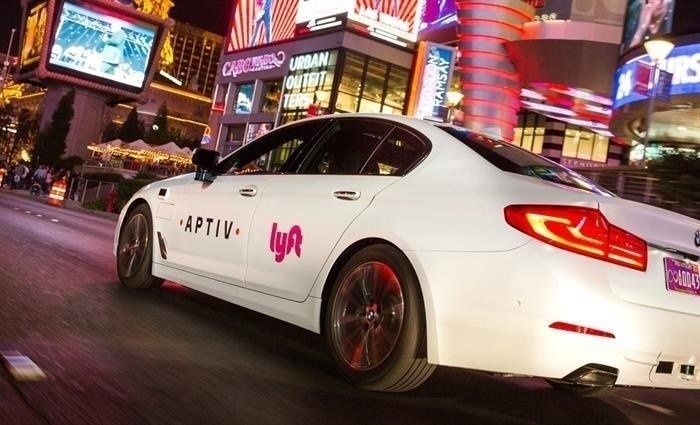Lyft’s Las Vegas self-driving taxi service passes 5,000-ride milestone
A commercial robotic taxi service operated by Lyft and its technology partner Aptiv has now complete 5,000 automated journeys in and around Las Vegas.
While this may seem small compared to the millions of miles covered by Google sibling Waymo over the last decade, Lyft's trial is believed to be the world's first and only commercial autonomous taxi service.
Read More:
- Lyft begins commercial self-driving taxi service in Las Vegas
- Autonomous cars pose threat to road congestion, warns World Economic Forum
- How smart voice assistants will make us trust autonomous cars
Where Waymo passengers get to ride for free (for now), Lyft customers pay the same for a robotic ride as they do for a human-driven one. The service is openly available to all Lyft customers who hail a ride in areas of Las Vegas served by the robotaxis. Currently, this includes 20 different pick-up and drop-off destinations around the city's famous strip.
Customers assigned a self-driving vehicle are asked via the Lyft app if they would like to proceed with the booking; if they agree, the car comes and gets them. If they decline, then the app searches for a nearby human-driven vehicle instead. As there is no driver, revenue is split between Lyft and Aptiv.
The trial has been running since the CES technology show in January and uses a fleet of 20 modified BMWs fitted with autonomous driving tech developed by Aptiv.
As of August 21, the service had completed 5,000 autonomous rides - an important milestone for a company looking to capitalize on the downfall of arch-rival Uber, whose autonomous test vehicle struck and killed a pedestrian in Arizona in March.
That incident caused Uber to halt all autonomous testing on public roads. While its vehicles returned to the road in July, they are firmly in manual mode, where a human drives and the car 'learns' about its environment.
The fallout from the fatality also prompted Uber to shut down its autonomous truck division and make changes to how its safety drivers are hired, trained and monitored. It was found the safety driver of the vehicle which killed pedestrian Elaine Hertzberg was watching television on her phone in the moments leading up to the collision.
Meanwhile, Lyft and Aptiv have offered paid-for autonomous rides for eight months with no reported incidents. Every vehicle used by the Vegas service includes two safety drivers in the front seats, who take notes of the car's behavior and are ready to take over in an emergency or if the vehicle becomes confused.
